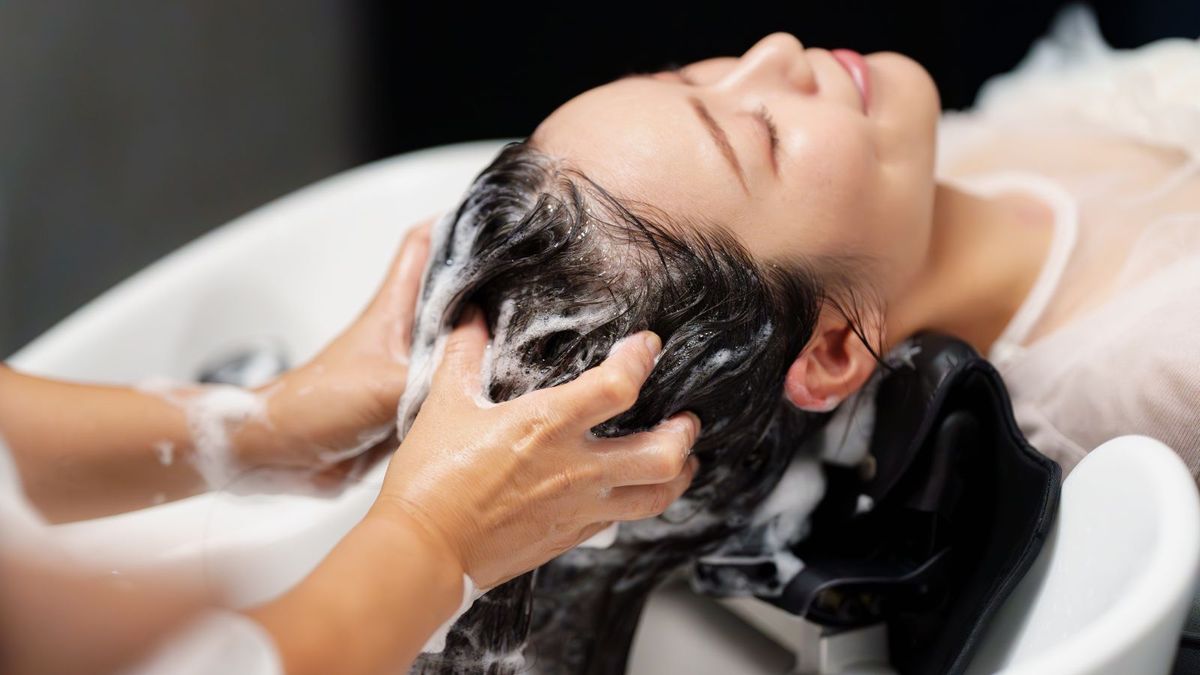
Ever notice that your hair starts acting up when life gets a little too crazy? You're not imagining things! Stress and hair health are like frenemies—too much stress, and your scalp throws a fit. Flaky scalp, hair shedding, greasy roots? Yep, all stress-related nightmares. But don’t worry, we’re here to break it all down and give you the deets on how to keep your mane happy.
The Stress-Hair Connection: What’s Going On?
Stress isn't just bad for your mood; it’s a wrecking ball for your scalp and hair. Here’s how:
1. Telogen Effluvium – The Shedding Saga
When stress skyrockets, your body goes into survival mode, prioritizing vital functions over hair growth. This condition, called telogen effluvium, forces more hair follicles into the resting phase, meaning they stop growing and fall out more rapidly than usual. If you’ve ever noticed excessive shedding after a stressful event, this is likely the culprit. The good news? It’s usually temporary, and with the right care, your hair will bounce back!

2. Scalp Sensitivity & Irritation
Ever feel like your scalp is on fire during stressful times? That’s because stress triggers inflammation, making your scalp extra sensitive. This can lead to redness, irritation, and even an increase in conditions like dandruff or eczema. When your scalp isn’t happy, your hair suffers too, growing weaker and more fragile.

3. Oil Overload or Dryness Drama
Your scalp’s oil production is directly influenced by stress hormones. For some people, this means their scalp turns into an oil slick, making hair greasy and limp in no time. Others experience the complete opposite—dryness and flakiness—because stress messes with natural hydration levels. Either way, an imbalanced scalp spells trouble for hair growth and overall health.

4. Inflammation & Hair Thinning
Chronic stress doesn’t just cause temporary hair loss; it can actually weaken your hair follicles over time. Inflammation triggered by prolonged stress can shrink hair follicles, leading to thinner, weaker strands that struggle to grow. If left unchecked, this could result in long-term hair thinning or even permanent loss in some cases.

Beating Stress for a Happy, Healthy Scalp
Good news! You can totally fight back against stress-induced hair chaos. Here’s how:
1. Scalp TLC
A little extra love for your scalp goes a long way! Regular scalp treatments, deep cleansing, and hydration help maintain a balanced environment for hair growth. Treatments designed to remove buildup, nourish the scalp, and improve circulation can counteract stress-related damage and keep your hair thriving.

2. Massage Magic
A gentle scalp massage isn’t just a luxurious treat—it’s a hair health essential! Massaging your scalp improves blood circulation, delivering much-needed oxygen and nutrients to your hair follicles. Plus, it stimulates natural oil production, helping to keep your scalp balanced. Bonus: It feels amazing and helps melt stress away!

3. Mind Over Matter
Managing stress is key to maintaining a healthy scalp. Find stress-relieving activities that work for you—whether it’s yoga, meditation, deep breathing, or dancing around your living room like nobody’s watching. Lowering your stress levels reduces inflammation, balances hormones, and gives your hair the best chance to grow strong.

4. Eat for Your Hair
Your locks love vitamins and minerals! A balanced diet packed with biotin, iron, zinc, and omega-3 fatty acids supports hair health and combats stress-related hair issues. Leafy greens, nuts, fish, and eggs are hair superfoods that provide the nutrients your follicles need to stay strong and resilient.

5. Hydration is Key
A dehydrated scalp is an unhappy scalp. Make sure you’re drinking plenty of water throughout the day to keep your scalp and hair hydrated from the inside out. Using gentle, nourishing hair products that maintain moisture balance can also help prevent dryness and irritation.

6. Catch Those Zzz’s
Beauty sleep is real! When you don’t get enough sleep, your body produces more cortisol (the stress hormone), which can trigger increased hair shedding and scalp issues. Aim for 7-9 hours of restful sleep each night to help your body repair itself and keep your hair growth cycle in check.

Conclusion

Stress and scalp health are more intertwined than we think. Did you know that when we're especially stressed—big work deadlines, personal issues, or just the everyday craziness of life—our scalp tends to get itchier, drier, or even oilier than normal? Perhaps you've even seen a few extra hairs in your brush when you'd prefer not to see them. That's no coincidence. Stress causes hormonal shifts in your body, which means more oil production, inflammation, and even hair loss. In short, the more stress you add, the more your hair complains.
But here's the catch: You can reverse it all. Caring for your scalp is not just about applying the right shampoos or serums—it's about caring for yourself in general. Prioritizing relaxation methods such as meditation, deep breathing, or even a nice daily walk can keep stress at bay. Indulging in a soothing scalp massage (extra points for using beneficial oils!) will stimulate blood flow while calming you simultaneously. And let's not miss the strength that comes with a good night's sleep and good eating—your hair adores those just like you do.
So if your scalp is in revolt, step back for a moment and ask yourself: How am I actually feeling? Oftentimes, the ultimate "hair treatment" isn't something in a bottle—it's in the space of self-nurturing, the boundaries that you set for yourself, and the love you share with yourself. When you take care of your body and mind, your scalp will take care of itself. And always remember, a happy scalp = happy hair. So be gentle with yourself—you and your hair will thank you!
FAQs
1: Can stress really cause permanent hair loss?
Most stress-related hair loss is temporary, but chronic stress can lead to long-term thinning if not managed properly. If hair loss persists, professional treatments can help restore growth.
2. How long does it take for hair to recover from stress-related shedding?
It varies from person to person, but most people see noticeable improvement within 3-6 months once stress is reduced and proper care is implemented.
3. Do scalp treatments actually help with stress-related hair loss?
Absolutely! Treatments that cleanse, hydrate, and stimulate the scalp create the perfect environment for regrowth and can significantly improve scalp health.
4. What’s the fastest way to stop stress-related shedding?
Managing stress is key—exercise, proper nutrition, hydration, and scalp care can speed up recovery and reduce excessive shedding.
5. Why am I experiencing hair loss?
Hair loss can be caused by stress, hormones, diet, scalp buildup, genetics, or underlying medical conditions. Our trichologist helps identify the contributing factors during consultation.


Share:
Korean Scalp Care: The Key to Fuller, Healthier Hair
DIY vs. Professional Scalp Treatments: What’s the Difference?